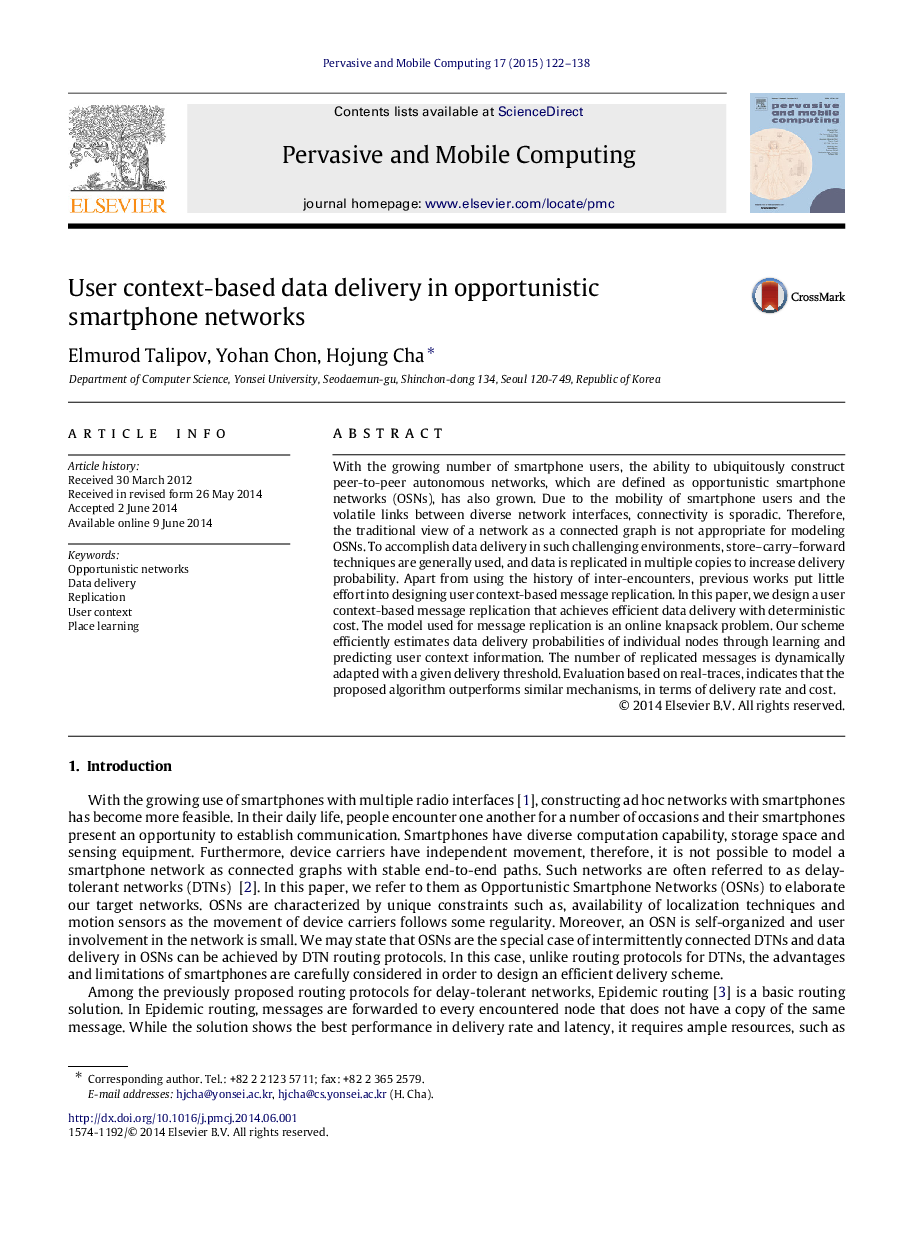| Article ID | Journal | Published Year | Pages | File Type |
|---|---|---|---|---|
| 466189 | Pervasive and Mobile Computing | 2015 | 17 Pages |
With the growing number of smartphone users, the ability to ubiquitously construct peer-to-peer autonomous networks, which are defined as opportunistic smartphone networks (OSNs), has also grown. Due to the mobility of smartphone users and the volatile links between diverse network interfaces, connectivity is sporadic. Therefore, the traditional view of a network as a connected graph is not appropriate for modeling OSNs. To accomplish data delivery in such challenging environments, store–carry–forward techniques are generally used, and data is replicated in multiple copies to increase delivery probability. Apart from using the history of inter-encounters, previous works put little effort into designing user context-based message replication. In this paper, we design a user context-based message replication that achieves efficient data delivery with deterministic cost. The model used for message replication is an online knapsack problem. Our scheme efficiently estimates data delivery probabilities of individual nodes through learning and predicting user context information. The number of replicated messages is dynamically adapted with a given delivery threshold. Evaluation based on real-traces, indicates that the proposed algorithm outperforms similar mechanisms, in terms of delivery rate and cost.
